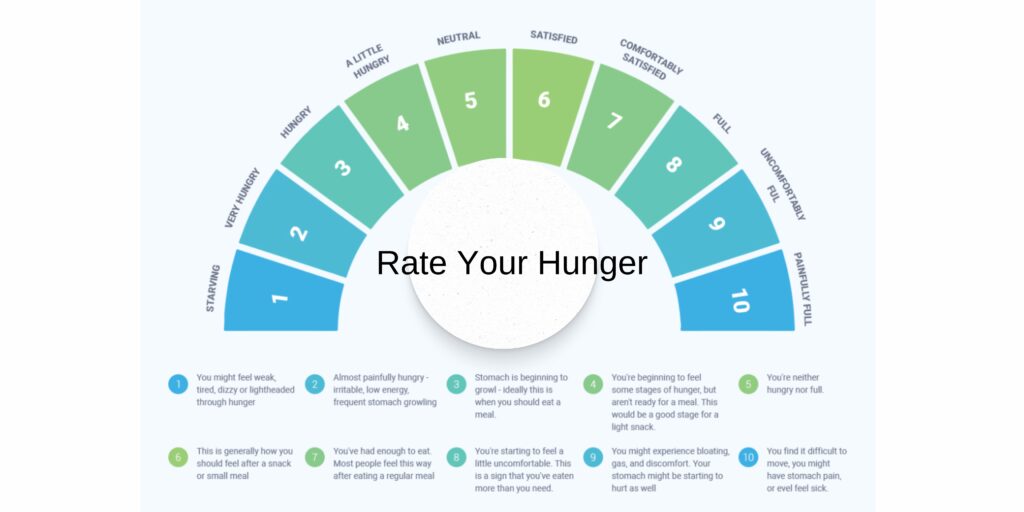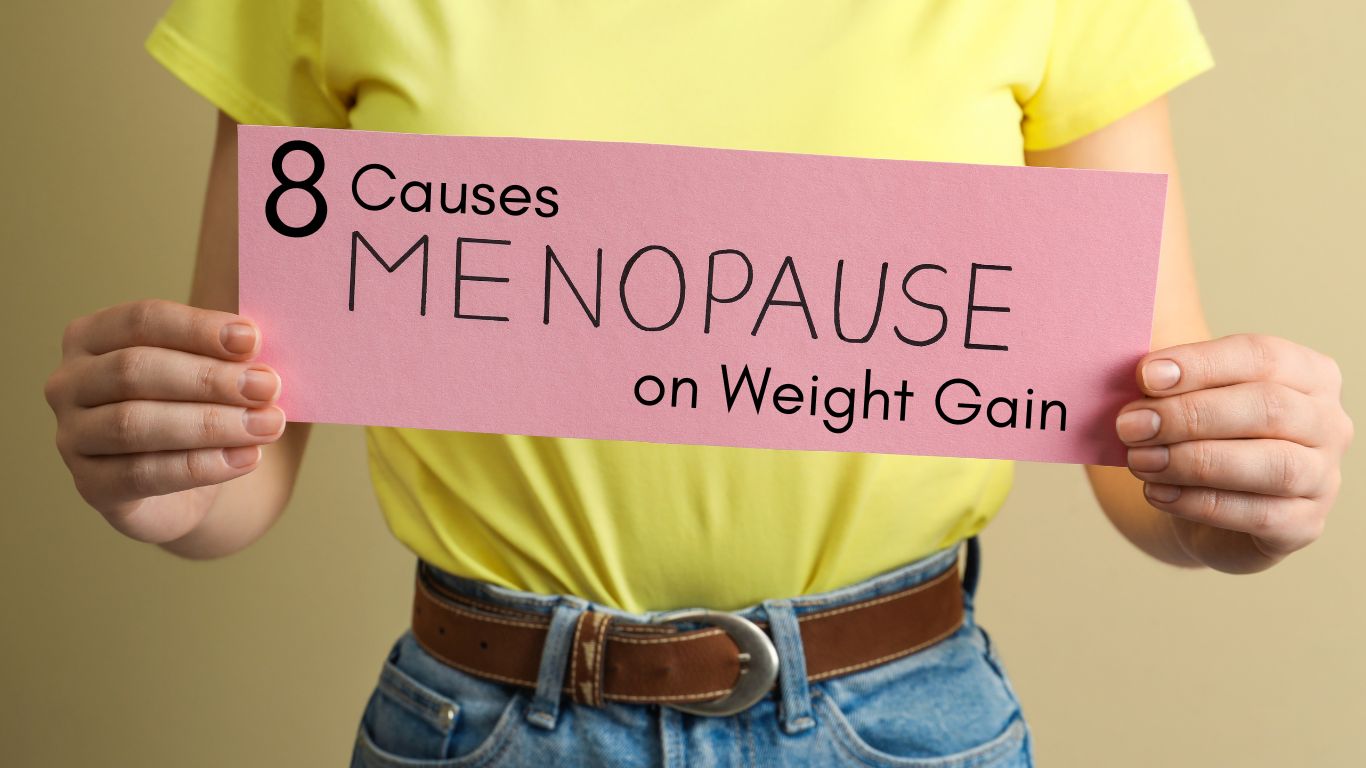8 Causes of Weight Gain on Menopause
Menopause is a natural phase in a woman’s life, typically occurring in the late 40s to early 50s. While this transition brings many changes, one common concern for many women is weight gain on menopause. Understanding the causes can empower women to take proactive steps to manage their health during this time, so here we share 8 causes of menopause weight gain.
Weight Gain on Menopause : 8 Causes
- Hormonal Changes Menopause is marked by a significant drop in estrogen levels. Estrogen plays a crucial role in regulating body fat distribution. When estrogen levels decrease, fat tends to accumulate around the abdomen, leading to weight gain and what’s known as menopause belly fat. Studies have shown that postmenopausal women are more likely to experience central obesity and this meno belly due to these hormonal shifts (Source).
2. Appetite Regulation Changes in hormones such as ghrelin (the hunger hormone) and leptin (the satiety hormone) during menopause can disrupt appetite regulation. Lower estrogen levels can increase ghrelin production, making women feel hungrier, while reduced leptin sensitivity may impair feelings of fullness. This combination can lead to overeating and weight gain (Source).

3. Slowed Metabolism As women age, their basal metabolic rate naturally slows down. This means the body burns fewer calories at rest, making it easier to gain weight. Coupled with hormonal changes, this can significantly contribute to weight gain on menopause.
4. Loss of Muscle Mass Aging is also associated with a gradual loss of muscle mass, a condition known as sarcopenia. Since muscle tissue burns more calories than fat tissue, losing muscle can further reduce metabolic rate, leading to increased fat storage. Reduced muscle also causes the body to lose shape and firmness.
5. Sleep Disruptions Hormonal changes during menopause often lead to sleep disturbances, including insomnia and fragmented sleep. Poor sleep is linked to increased levels of cortisol (the stress hormone) and altered levels of appetite-regulating hormones, which can lead to overeating and weight gain (Source).
6. Stress and Cortisol Levels The menopausal transition can be a stressful time due to physical, emotional, and social changes. Elevated stress levels can increase cortisol production, which is associated with abdominal fat accumulation, and again menopause belly fat, and cravings for high-calorie comfort foods.
7. Lifestyle Factors Many women face lifestyle changes during menopause, such as reduced physical activity or changes in eating habits. Stress, fatigue, and emotional challenges brought on by menopause symptoms can lead to overeating or unhealthy food choices, exacerbating weight gain.
8. Insulin Resistance Some women develop insulin resistance during menopause, which can make it harder for the body to regulate blood sugar levels. This condition can lead to increased fat storage and particularly around the midsection – menopause belly fat.
Managing Weight Gain on Menopause
You can see a theme with weight gain causing menopause belly fat, and although weight gain on menopause can be challenging, and results can be slower, there are effective strategies to address it:
- Adopt a Balanced Diet
- Focus on nutrient-dense foods, including fruits, vegetables, lean proteins, and whole grains.
- Limit processed foods, sugary snacks, and saturated fats.
- Include healthy fats, such as omega-3 fatty acids, which support overall health.
- Protein and fibre are key to keeping you full so making these a priority will get best results. Top up any gaps in your diet with Pretty Pea protein powder, fibre supplements or fruit and vegetable supplements.
- Consult Healthcare Providers Speak with a doctor or dietitian about tailored strategies for managing weight gain on menopause. Estrogen does impact weight gain. In some cases, hormone replacement therapy (HRT) or other medical interventions may be beneficial. Some medications, including certain antidepressants can make loss feel almost impossible so its important to discuss your needs with your GP.
- Stay Physically Active
- Engage in regular aerobic exercise, such as walking, cycling, or swimming, to burn calories and improve cardiovascular health. Exercise also boosts natural feel good endorphines.
- Incorporate strength training exercises to build and maintain muscle mass and metabolism. This, alongside increasing protein and fibre, could be the singles biggest change to drive results and change how you feel about your body.
- Manage Stress
- Practice mindfulness, yoga, or meditation to reduce stress levels.
- Prioritize sleep, as poor sleep can contribute to weight gain by disrupting hunger-regulating hormones.
- Monitor Portion Sizes
- Being mindful of portion sizes can prevent overeating. Consider using smaller plates or measuring servings to stay on track. Start looking at package labels for nutritional value. We all tend to consume more calories than we realise. Pretty Pea Meno Weight can help with this too.

Conclusion
Weight gain on menopause is a common but manageable by making certain changes. By understanding the underlying causes—from hormonal changes to lifestyle factors—and adopting healthy habits, women can take control of their health during this transformative phase. If you’re struggling with weight gain on menopause and menopause belly fat, remember that small, consistent changes can lead to significant improvements over time.
For more information on managing menopause-related health issues, consult your healthcare professional.


